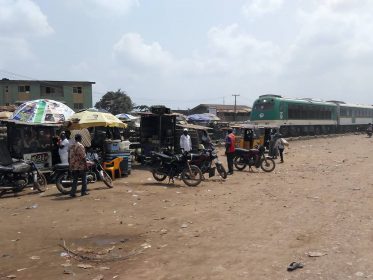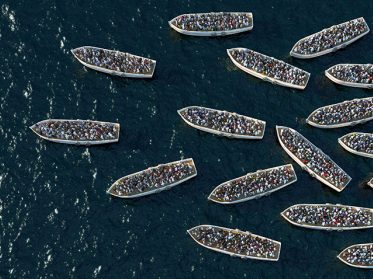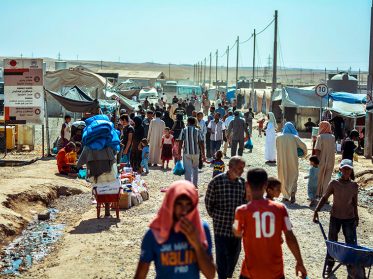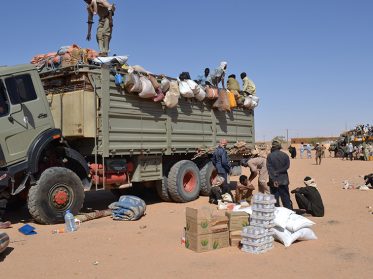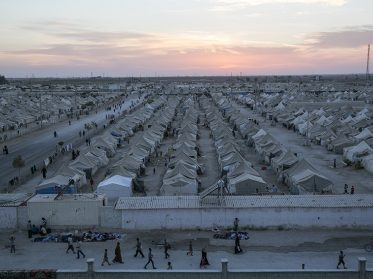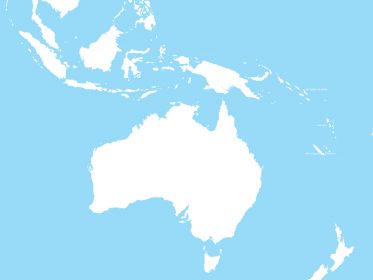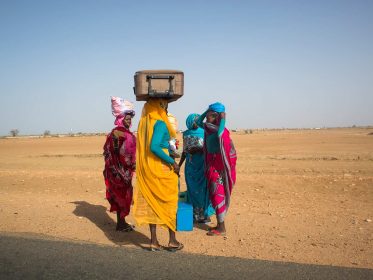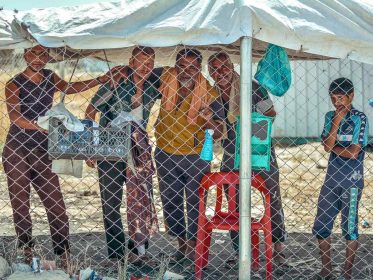Research and surveys
As irregular migrants continue to embark on dangerous journeys, governments and civil society have sought to reduce the inherent dangers. Migrant communications have emerged as an important part of this strategy alongside traditional humanitarian responses. The European Commission engaged Optimity Advisors and Seefar to study information consumption and decision-making processes among West Africans planning to …
How West African migrants engage with migration information en route to Europe Read More »
What does it mean for a country to be ‘generous’ to refugees? The term “generous” is frequently used in discussions about displacement, but often with different connotations. Countries that accept large numbers of refugees—such as Canada’s 2015 decision to resettle 25,000 Syrian refugees—have been praised as ‘generous’. At the same time, the term is used by …
Seefar built on its work with Iraqi Kurds by recently completing a mixed-methods research project in Iraq and Greece focussed on Iraqi Kurd migrants. The aim of this latest research was to understand: The location and intentions of pockets of Iraqi Kurd and Arab migrants, Their motivations and what influences their decision-making processes, Destination preferences, andRelevant protection …
Seefar is implementing a major study of irregular migration and smuggling in migrants through Libya. Researchers have conducted interviews with migrants from the Horn of Africa and West Africa, the facilitators of their journeys, and other key informants expert in the subject. We also surveyed over 450 migrants of the same nationalities to generate much …
Large-scale research into mixed migration in Libya Read More »
The Syrian conflict has displaced millions and continues to be one of the world’s most urgent humanitarian emergencies. By the end of 2017, Turkey had registered over 3.4 million Syrian refugees. Today, refugees face discrimination and rising tension with host communities, restricted movement within Turkey, and sharp protection vulnerabilities. Their immediate needs and future aspirations …
Return, Stay, or Migrate? Understanding the Aspirations of Syrian Refugees in Turkey Read More »
Earlier in 2017, Seefar was entrusted by the Center for International Legal Cooperation (CILC) and their implementing partner, the Jakarta Centre for Law Enforcement Cooperation (JCLEC), to evaluate an ambitious program to design new curricula on combatting transnational crime for the Indonesian National Police. Capitalizing on our experience in evaluating similar initiatives, we worked with program stakeholders to garner evidence of the project’s …
Center for International Legal Cooperation Midterm Evaluation Read More »
In 2017, Seefar commissioned a short, qualitative research study to provide a snapshot of the Syrian refugee experience in South Australia. The aim of the report is to review progress on integration, map strengths and weakness of the government and resettlement services, and suggest lessons to be learned. The study includes multiple stakeholder views, including …
Integration of Syrian Refugees in South Australia: A Snapshot Read More »
Seefar’s approach to migrant research focusses on understanding the perspectives of the actors – the displaced people, migrants and smugglers. Since 2014 Seefar has conducted primary research with more than 20,000 individuals in Nigeria, Eritrea, Ethiopia, Sudan, Libya, Mali, Niger, Somalia, Senegal, Burkina Faso, Kenya, Tunisia and Egypt. In April 2017, we will have completed …
Seefar has been working in North Africa, East Africa, the Horn of Africa and West Africa continuously since we were created. Our East African and North African presence is one of our biggest, with teams working on multiple projects including research and surveys, program design, consulting, counselling, evaluating programs and strategic communications. West Africa is …
